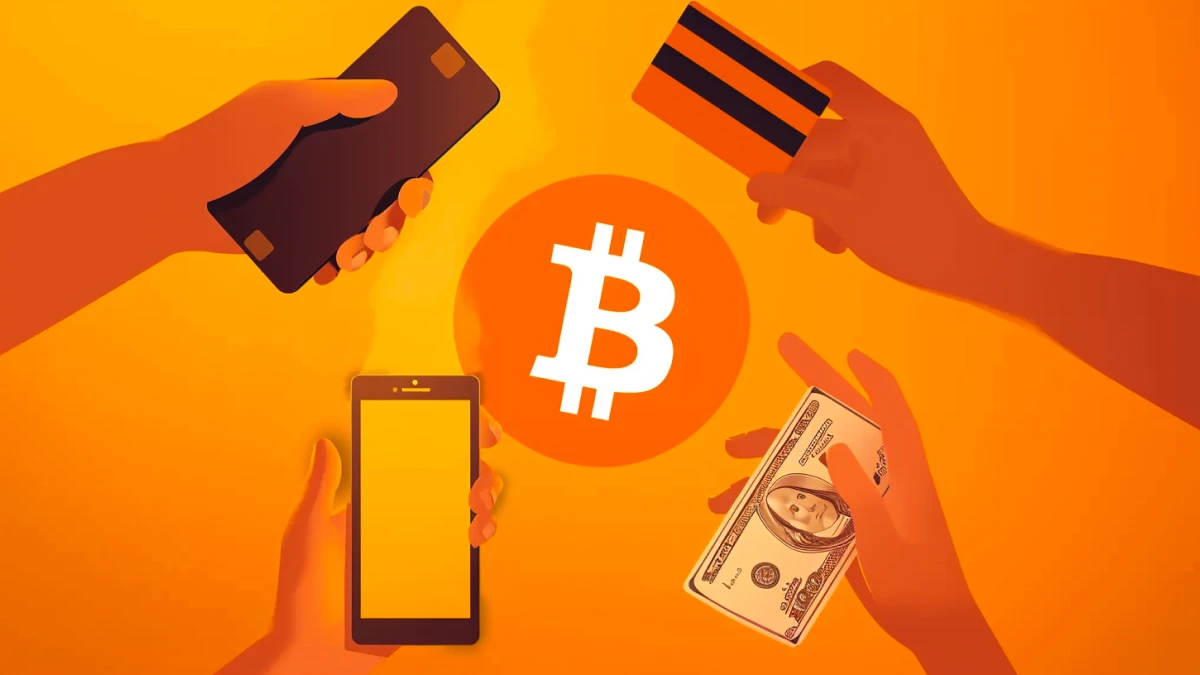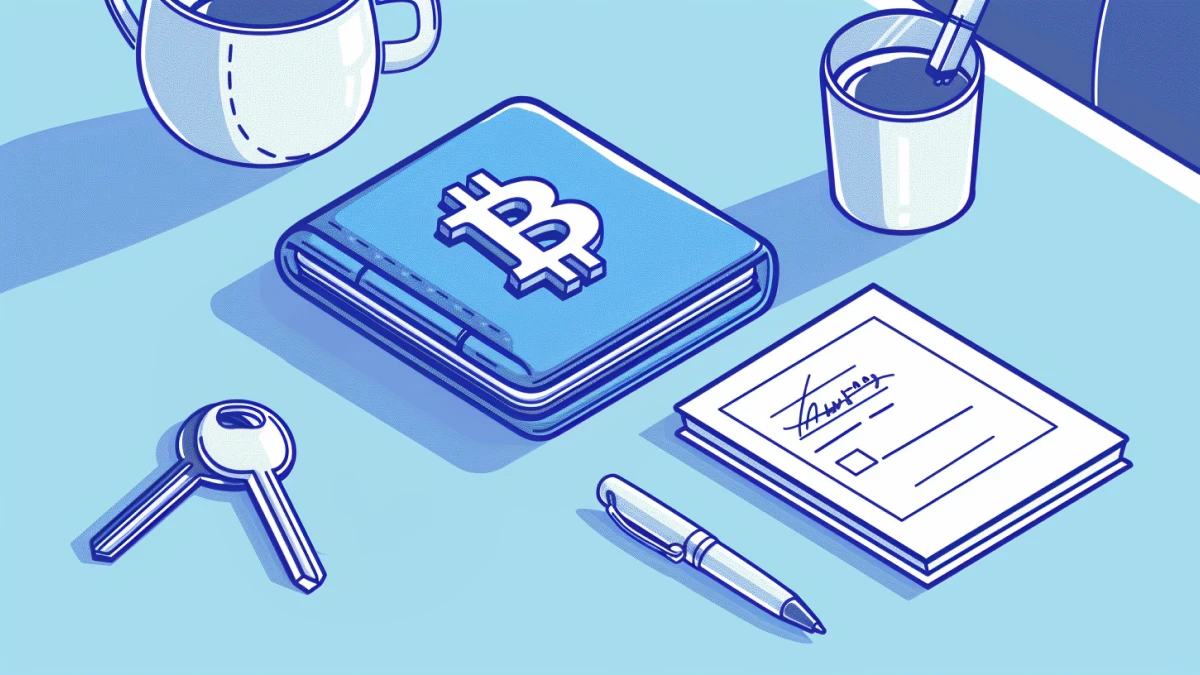Bitcoin is a digital money. Unlike fiat currencies such as the U.S. dollar, Bitcoin is not controlled by any central authority. Instead, Bitcoin is regulated by a set of rules. This makes Bitcoin decentralized. Nobody independently owns or controls Bitcoin, so everyone can participate in the network.
Bitcoin’s creator, Satoshi Nakamoto, explained Bitcoin’s purpose in the whitepaper:
Bitcoin transactions are strictly peer-to-peer. This means money flows directly from the sender to the receiver, and it is never held or controlled by a third party in between. Bitcoin is sent to a Bitcoin address, a string of letters and numbers. If the owner of the address is unknown, transactions with that address will be effectively anonymous.
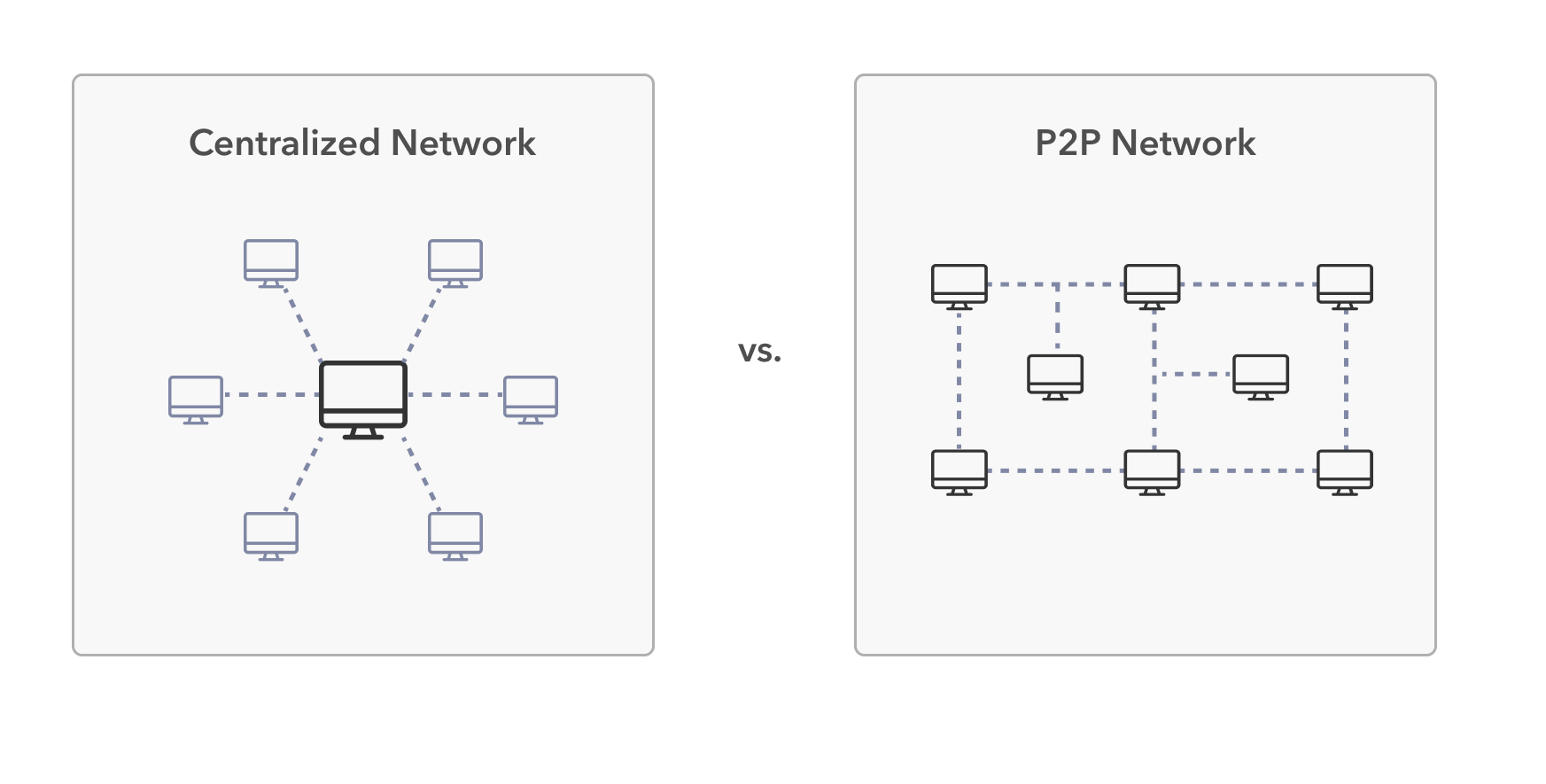
Bitcoin was created in tandem with the rules that govern its use and supply. As such, the supply of bitcoin is predetermined and will not be changed. The supply of bitcoin will never exceed 21 million, making it provably scarce.
➤ Learn more about Bitcoin’s hard cap.
How Is Bitcoin Used
Bitcoin can be used in similar ways to other currencies. It can pay for goods and services based on the value of the currency. To send Bitcoin to another party, the sender only needs to know the recipient’s Bitcoin address.
All transactions can be seen by everyone in the network, and the balance of an address can be easily checked. However, addresses do not directly identify the person that controls them. This makes the network pseudonymous as transactions are public, but the human owner may not be known. A single person can control as many addresses as they like, making it difficult to tie an address to its owner.
Many people who own bitcoin do not control their private keys directly. Instead, they allow a trusted custodian, such a River, to maintain the custody of the bitcoin. This custodian will need to maintain private keys for any address which hold bitcoin.
Advantages of Bitcoin
Many people choose to use Bitcoin instead of other currencies because it satisfies the characteristics of money very well. Among other factors, the divisibility, portability, durability, and scarcity of Bitcoin make it a very effective form of money.
Watch the short video below to understand why Bitcoin has value.
Bitcoin’s Blockchain Technology
The foundational data structure behind Bitcoin is blockchain technology, which allows for bitcoin transactions to occur with rapid settlement.
On average, Bitcoin transactions are confirmed every ten minutes, although this period varies. A transaction is usually reliable after a single confirmation, but most people prefer to wait for 2-6 additional confirmations before accepting the payment as an additional security measure.
Even if you wait for several confirmations, Bitcoin payments clear much more quickly than traditional fiat currencies, which may take days to move through legacy financial institutions and do not clear on weekends or holidays.
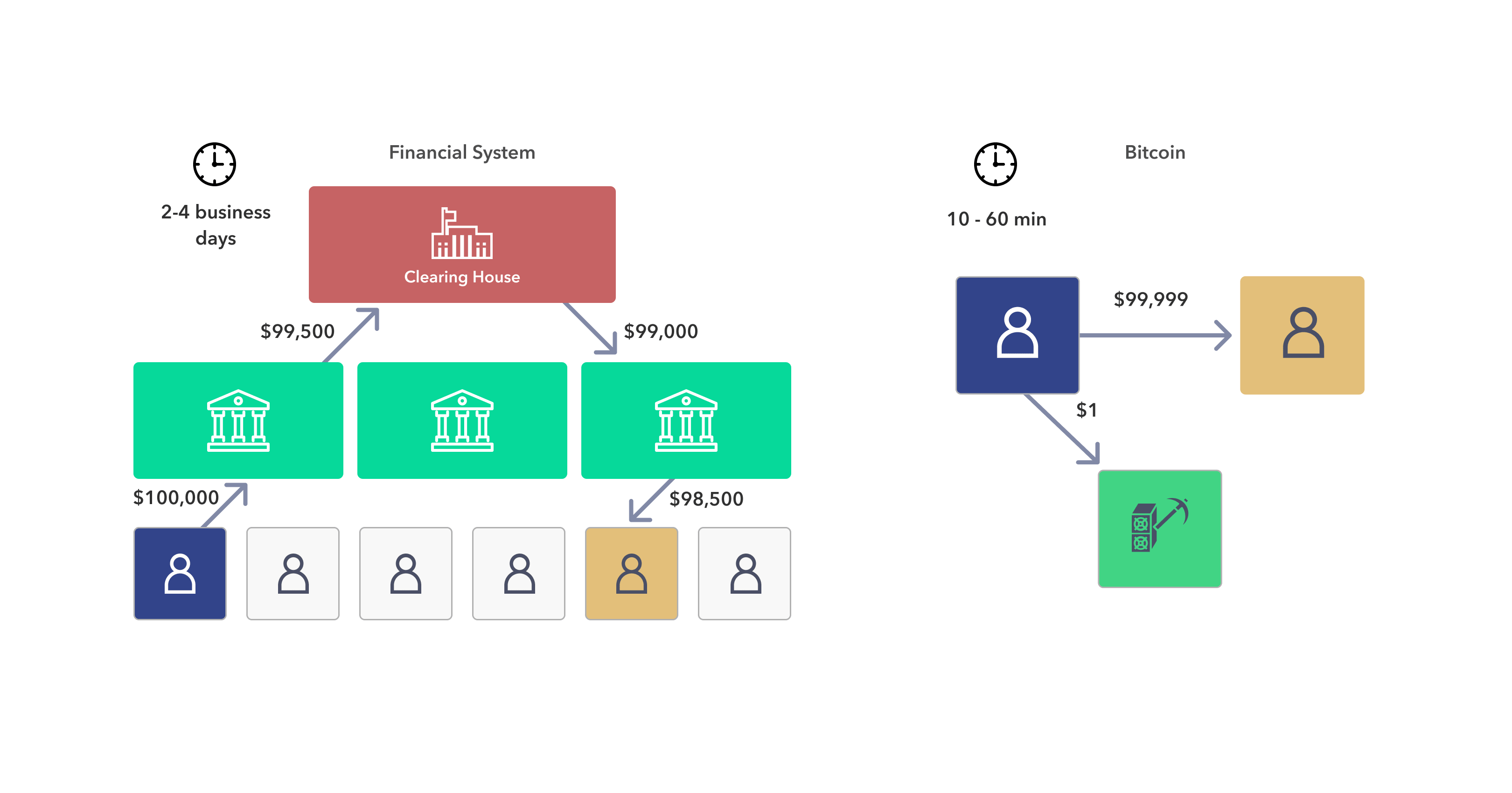
Bitcoin’s Scarcity
There will never be more than 21 million bitcoin. This means that, no matter how high demand for bitcoin rises, the supply is fixed, and thus, the value of Bitcoin can ascend indefinitely. Scarcity is a valuable trait for money because it enables money to be a truly fair, unchanging measure of value.
➤ Learn more about what will happen after all the Bitcoin are created.
Bitcoin’s Divisibility
Although there are only 21 million bitcoin, each bitcoin is divisible into 100 million pieces, called satoshis. This allows bitcoin to be spent in small amounts even as the price of a single bitcoin continues to skyrocket. Because bitcoin is purely digital, satoshis can be further divided infinitely on other layers.
Bitcoin’s Decentralization
Bitcoin is completely decentralized, and uncontrollable by any one party. This means that, unlike with other currencies, particularly fiat currencies, no centralized party can arbitrarily change the rules, produce more bitcoin, or redistribute bitcoin.
Furthermore, no one can be banned from the Bitcoin network. Anyone can mine, run a node, or send and receive transactions. No qualifications or permission is required.
How Bitcoin Works
Bitcoin uses a blockchain to store all of the transactions that occur on the network. Bitcoin’s blockchain is a shared public ledger that all participants in the network can observe. Batches of transactions are added to the blockchain in blocks. Every block is appended chronologically to the previous block, ensuring that no bitcoin is double spent. This design was intended to make Bitcoin transparent and resistant to corruption or fraud, and it has worked for over a decade.
To learn more about the participants of the Bitcoin network and how Bitcoin works, you can watch our video below.
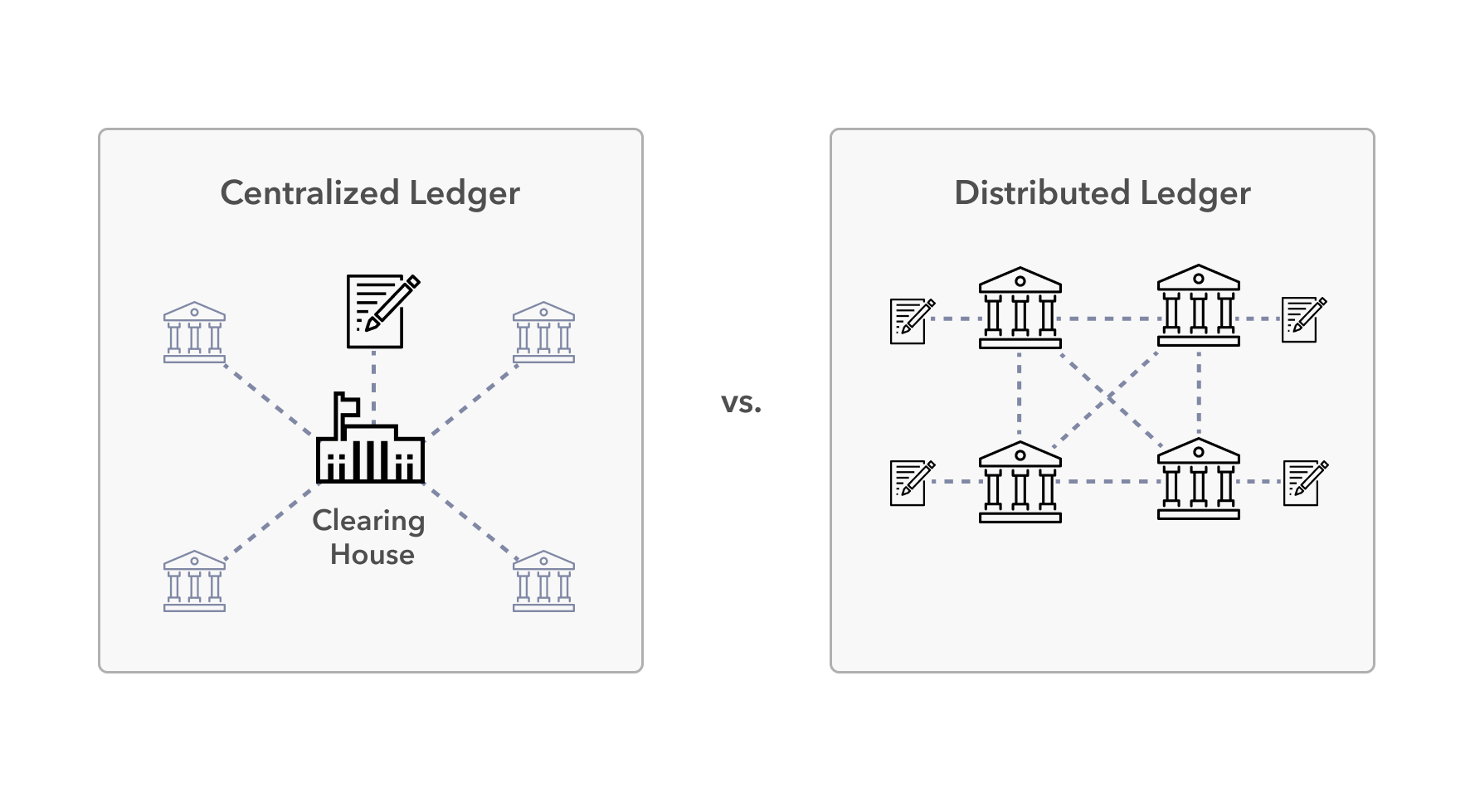
Every block contains Bitcoin transactions. There is a limit to the number of transactions that can be included in a single block, so a transaction might not be confirmed in the first block after it was initiated. A transactor can include a higher network fee to incentivize miners to include their transaction as quickly as possible. This fee generally represents a very small percentage of the overall transaction.
Bitcoin Mining
Bitcoin mining, the procedure for adding new blocks to the blockchain, ensures that past transactions cannot be changed. This immutability ensures that payments will never be reversed or redirected. Once a transaction has received multiple confirmations, the recipient can feel confident that the money has settled. Every additional confirmation makes this transaction less likely to be reversed.
Key Takeaways
- Bitcoin allows for peer-to-peer transactions without the need for a trusted third party.
- There will never be more than 21 million bitcoin, making it provably scarce.
- The Bitcoin network is extremely secure and almost impossible to alter.

